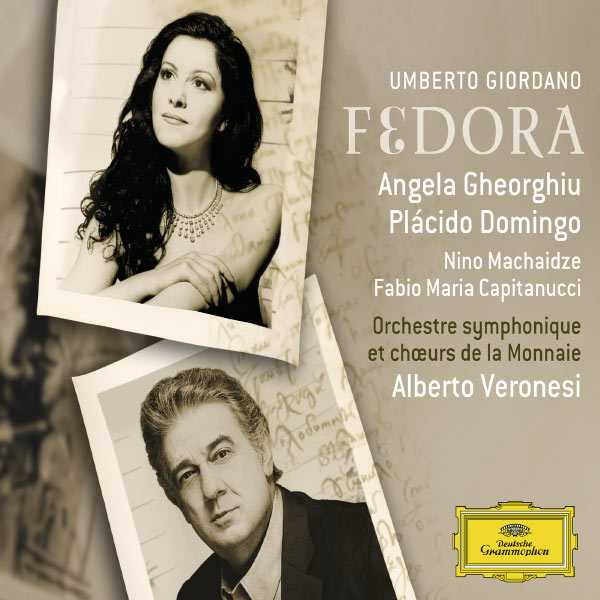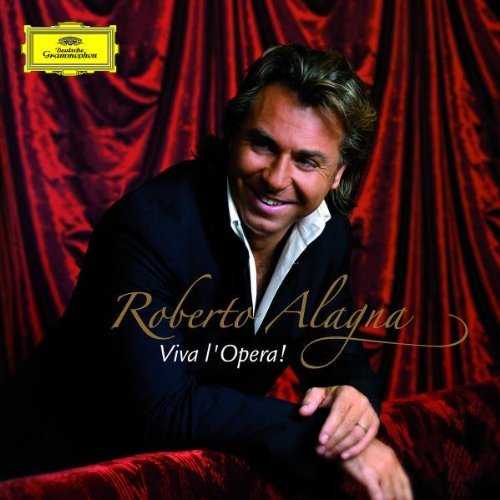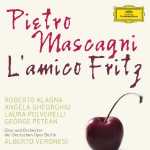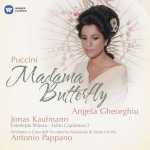
Composer: Umberto Giordano
Performer: Angela Gheorghiu, Nino Machaidze, Plácido Domingo, Fabio Maria Capitanucci
Orchestra: Orchestre Symphonique et Choers de la Monnaie
Conductor: Alberto Veronesi
Number of Discs: 2
Format: FLAC (tracks)
Label: Deutsche Grammophon
Catalogue: 4778367
Release: 2011
Size: 399 MB
Recovery: +3%
Scan: cover
Fedora
CD 01
Act 1
01. Introduction: Quattro! – Sei!
02. Rigida è assai…O grandi occhi lucenti
03. Signora, è qui la slitta del padron!
04. Egli mi disse
05. Son gente risoluta…Su questa santa croce
06. Altra volta quell’uomo vedesti
Act 2
07. Signori, vi presento Lazinski
08. Principessa, ci fate langiur
09. La Donna Russa
10. Ma dunque, è amore…Amor ti vieta
11. Se innocente sei davvero, crederà
12. Portentoso!…Strepitoso!
13. Orchestral interlude
14. Grech!…I vostri uomini
15. Mia madre, la mia vecchia madre
16. Io mi domanda ancora
17. Vedi, io piango
CD 02
Act 3
01. Dice la capinera
02. Quanto sei bella!
03. E voi più non turbate
04. Quel truce sgherro
05. La montanini mia
06. Jariskin recò all’imperatore
Fedora is an opera in three acts by Umberto Giordano set to an Italian libretto by Arturo Colautti and based on the play Fédora by Victorien Sardou. It is one of the most notable works of Giordano. The Opera has seen a resurgence in recent years, for example, with this stunning recording by two of the world’s greatest ever opera singers, Placido Domingo and Angela Gheorghiu.
There are live recordings of two of Plácido Domingo performances in Fedora, both with Mirella Freni in the title role, one from La Scala, 1993 (available on both CD and DVD), and one from the Metropolitan Opera, 1996 (available on DVD), but this is his first studio recording of the opera. Fedora receives a top-notch production that features Orchestre symphonique et choeurs de la Monnaie led by Alberto Veronesi, who continues his commitment to reviving obscure but worthy verismo operas. The orchestra and chorus perform with their characteristic polish and finesse, and while their approach comes across as somewhat reserved, Fedora, with its cast made up largely of aristocrats, is a work in which a certain level of reserve is more appropriate than in some verismo operas about the messy lives of hot-blooded peasants, for instance. Domingo, in very fine voice, doesn’t stint on bringing a thoroughly Italianate passion to his role and he shines in the showcase aria, “Amor ti vieta,” and in his anguished final scenes. The title role is more substantial than his and Angela Gheorghiu’s sounds terrific; her performance captures the protagonist’s extreme emotions effectively, appropriately dark and furious in the first act, girlish as her love awakens, and finally crazed with remorse. The smaller roles are beautifully cast and there are no weak links in the singing. Mostly unknown or little known, the singers bring first-rate voices and focused characterizations to the opera, most notably mezzo-soprano Nino Machaidze and baritone Fabio Maria Capitanucci. The main weakness of the opera is the pithiness of its libretto; climactic moments that need time to unfold slowly enough to give the music time to expand are hurried through. Fedora is a wonderfully tuneful work, though, and while it may lack the high-octane drama of Tosca or Pagliacci, its very attractive score makes it a piece that should appeal to fans of fin de siècle Italian opera. Deutsche Grammophon’s engineers have lavished great care on producing a recording of the highest quality: immaculately clean, warm, full, and well-balanced.



